Qatar Museums (QM) will open on October 25 at QM Gallery Al Riwaq, the largest museum exhibition outside of the US – and the first in-depth presentation worldwide in nearly two decades – of the work of the closely linked American artists Dan Flavin (1933–1996) and Donald Judd (1928–1994).
The exhibition will also be the first major presentation of Flavin and Judd’s works in the Mena region. The artists were considered two of the founders of minimalism, the widely influential art movement that broke free from traditional notions of painting and sculpture to focus on experiencing real space and materials.
Flavin and Judd met in 1962 in New York, and quickly became central figures among a cohort of artists including Lee Bontecou, John Chamberlain, Yayoi Kusama, Sol Lewitt, Claes Oldenburg, and Frank Stella, who were charting the new terrain between painting and sculpture.
The Dan Flavin | Donald Judd: Doha exhibition is organised by QM, in cooperation with the Los Angeles County Museum of Art (Lacma) and is curated by its CEO, Michael Govan, director Wallis Annenberg, and Contemporary Art associate curator Jennifer King.
The exhibition is part of Qatar Creates, the year-round national cultural movement that curates, promotes, and celebrates the diversity of cultural activities in Qatar and connects residents and global audiences with Qatar’s creative industries.
Featuring 34 works by Flavin and 25 by Judd, the show focuses on the artists’ shared engagement with material, colour, and form. Spanning the 1960s through the 1990s, the exhibition will highlight works from the collection of QM, as well as important loans from other museums, private collections, the Dan Flavin Estate, and the Judd Foundation.
“We are grateful to Michael Govan and our partners at the Los Angeles County Museum of Art for working with us to bring this landmark exhibition to Qatar, where we are introducing the works of two icons of contemporary art, Dan Flavin and Donald Judd, not just to Qatar but to the entire region.
“The lasting influence of these artists is not limited to the visual arts. Their work continues to be a touchstone in fields as diverse as architecture, design, and furniture. It is especially fitting that this exhibition opens during Qatar Creates Week, when we celebrate all artistic disciplines and consider how art has the power to transcend boundaries,” QM chairperson HE Sheikha Al Mayassa bint Hamad bin Khalifa al-Thani said in a press statement.
Govan said: “Dan Flavin and Donald Judd are often described as the founders of American minimalism. They were as innovative as European painters Picasso and Braque in the early part of the twentieth century. In the 1960s in New York, Flavin and Judd imagined a new art made of common industrial materials ubiquitous in our modern culture.
“In the end, their artworks are anything but minimal. On the contrary, the works in this exhibition from all periods of the two artists’ careers demonstrate their mastery of color, form, materials, as well as their attention to their artworks’ relationship to their surrounding architecture.”
The exhibition is organised with works by both the artists installed in the three central galleries, demonstrating their intersecting concerns and practices. The galleries flanking this central section are dedicated separately to each artist. Highlights of Dan Flavin | Donald Judd: Doha include:
- Flavin’s early lightwork the diagonal of May 25, 1963 (to Constantin Brancusi), 1963, inspired by the Constantin Brancusi sculpture Endless Column
- Works from Flavin’s “monument” for V. Tatlin series using cool white florescent lights of different lengths in varying arrangements
- A number of the works that were shown in the landmark exhibition dan flavin: fluorescent light in 1964 at New York’s Green Gallery
- A large-scale installation by Flavin, alternating pink and “gold,” 1976
- A landmark Judd work, untitled, 1964, that marks the artist’s transition between painting and sculpture
- A group of metal progression works intended to be shown in buildings Judd designed, but never completed, in Marfa, Texas at the Chinati Foundation, which have never been exhibited as a group outside Marfa
- Judd’s vertical stack works, one in galvanized iron and one brass and green plexiglass, each demonstrating his mastery of material and color
- Judd’s untitled, 1986, the artist’s largest wall work in plywood and plexiglass comprised of thirty units.
The exhibition is a legacy project of the 2021 Year of Culture between Qatar and the US, a yearlong cultural exchange designed to deepen the understanding between two nations and their people.
The Year of Culture Qatar – US also featured exhibitions of the works of Jeff Koons and Virgil Abloh in Doha and an exhibition of extraordinary textiles and portraits on loan from the Museum of Islamic Art (MIA) at Washington, DC’s Smithsonian National Museum of Asian Art.
A robust public programme will accompany the exhibition and include in-person and digital panel conversations and lectures, special tours, and more.
QM and Lacma share a history of collaboration and professional exchanges going back to 2012 with the presentation of Lacma’s exhibition, Gifts of the Sultan: The Arts of Giving at the Islamic Courts at MIA. In 2018, the partnership was later expanded through a joint collaboration with the Yuz Museum in Shanghai.
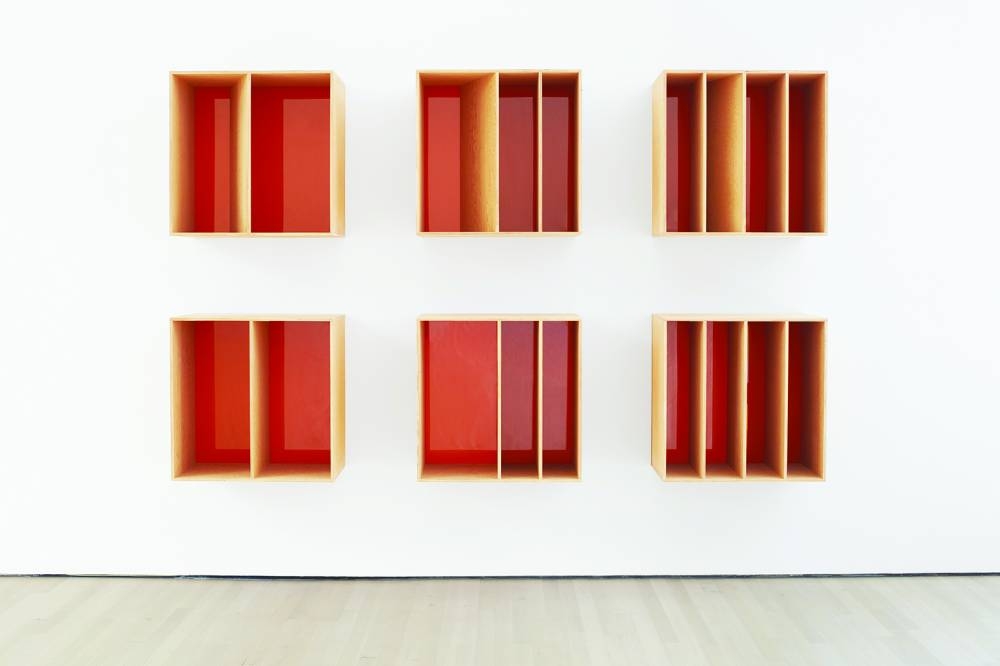
Donald Judd, untitled, 1986, Douglas fir plywood and orange plexiglass.

Dan Flavin, alternating pink and “gold”, 1967, pink and yellow fluorescent light (supplied pictures).
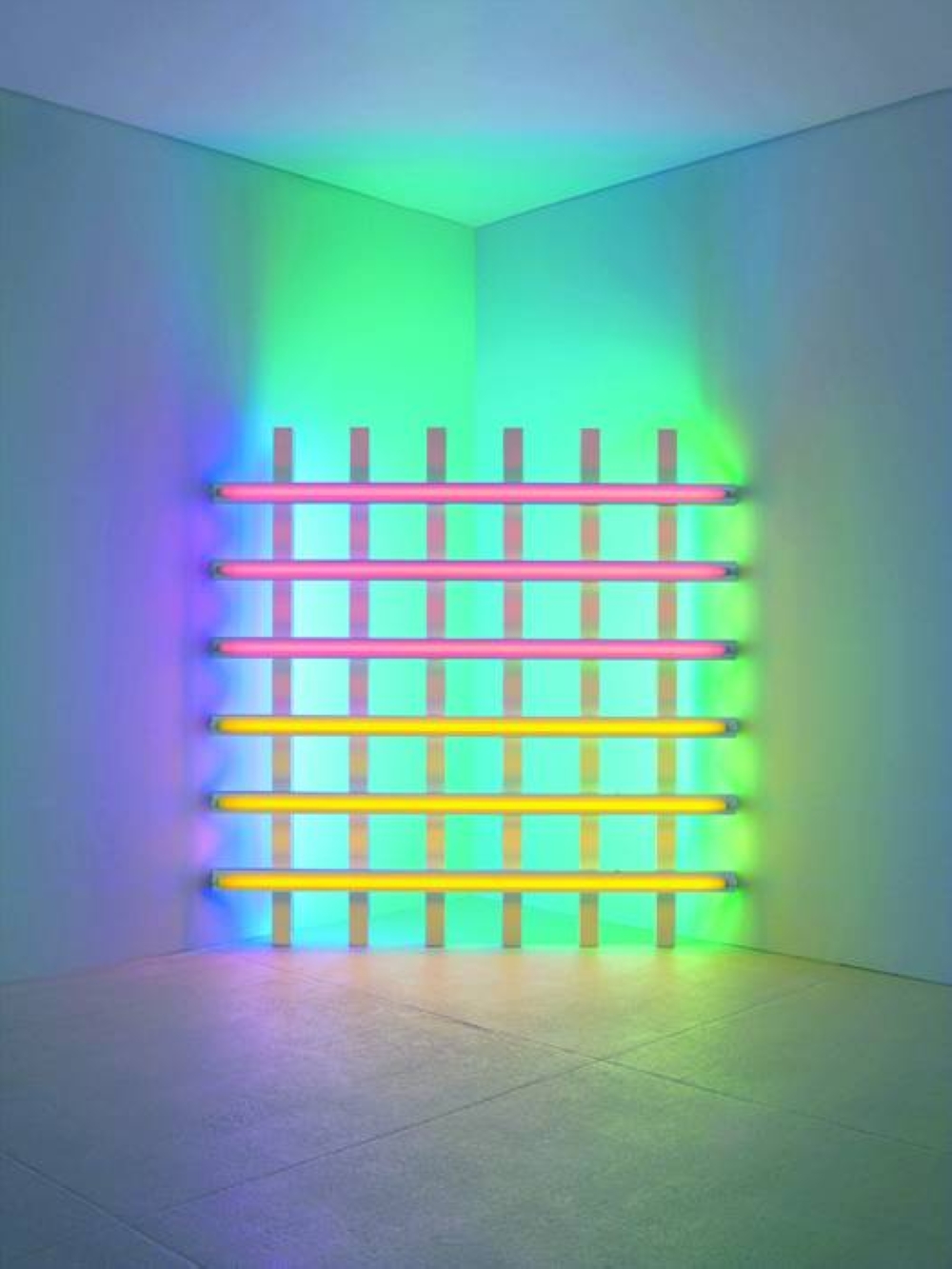
Dan Flavin, untitled (in honour of Harold Joachim) 3, 1977, pink, yellow, blue, and green fluorescent light.
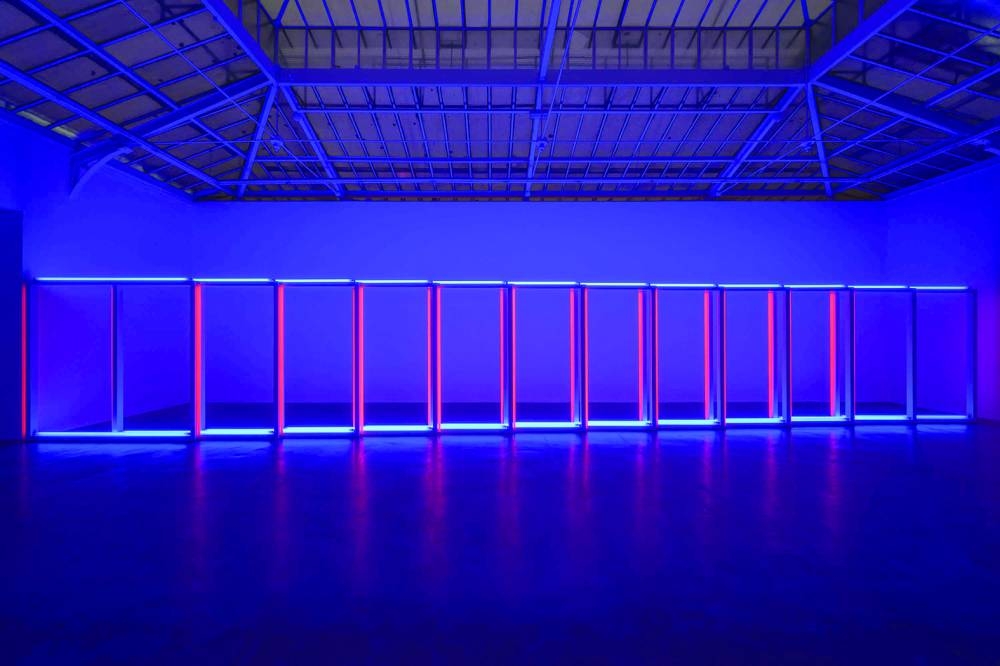
Dan Flavin, untitled, 1970, blue and red fluorescent light, modular units.
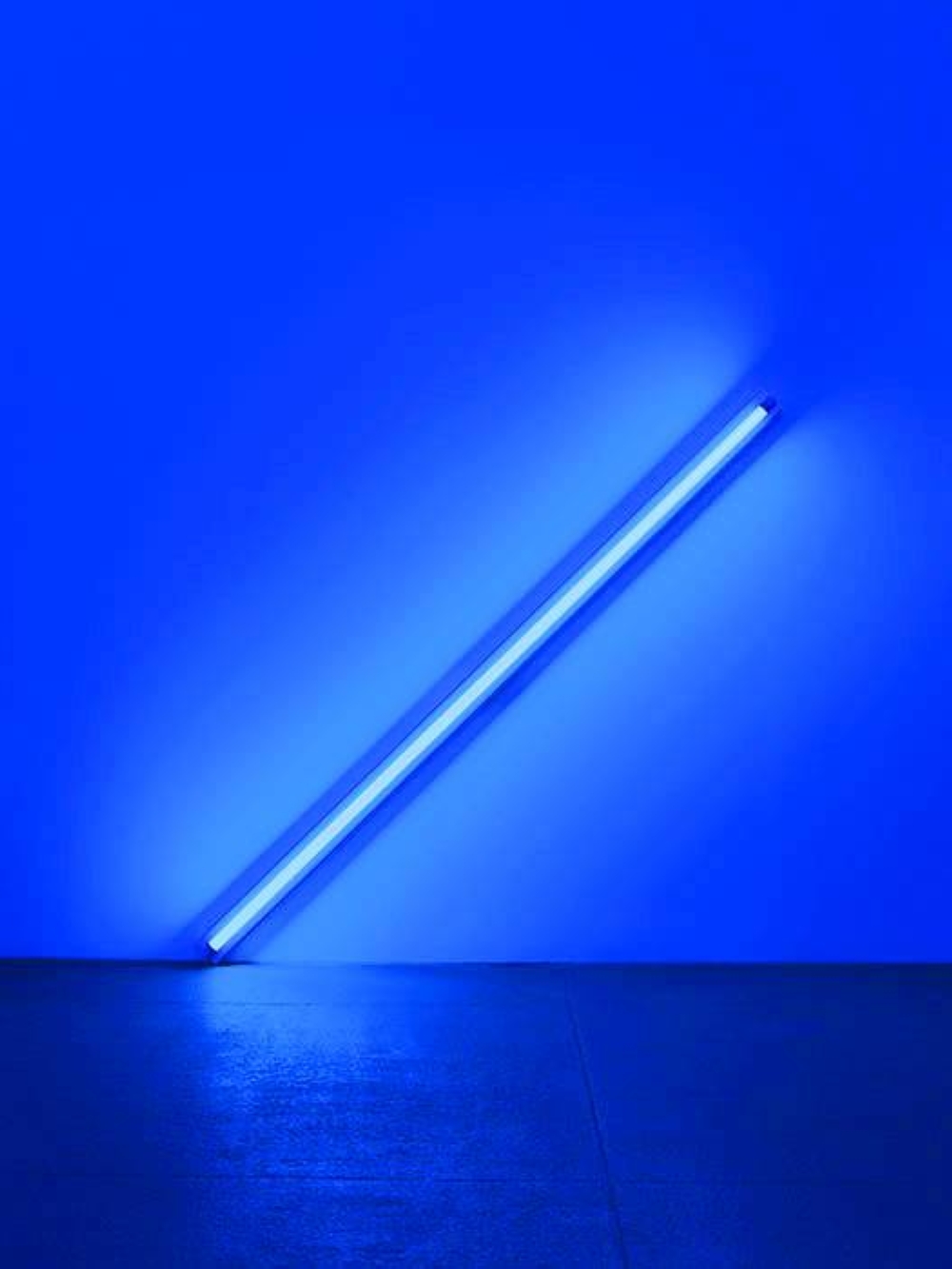
Dan Flavin, the diagonal of May 25, 1963, 1963, blue florescent light.
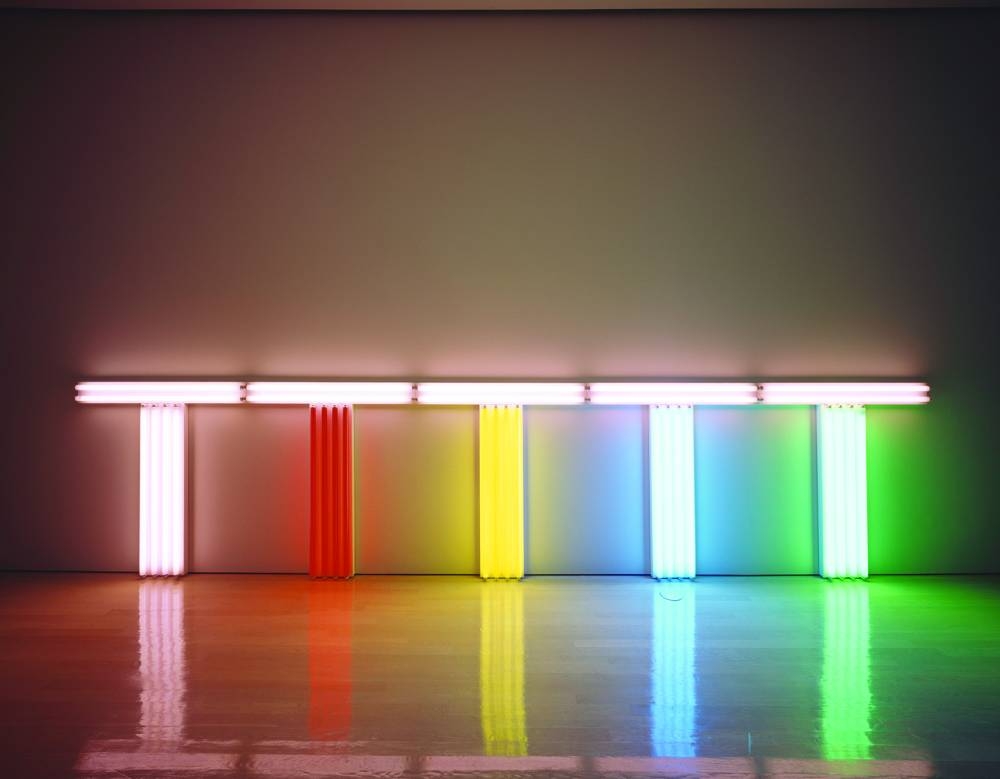
Dan Flavin, untitled (to Don Judd, colorist) 1-5, 1987, pink, red, yellow, blue, and green fluorescent light, five parts.
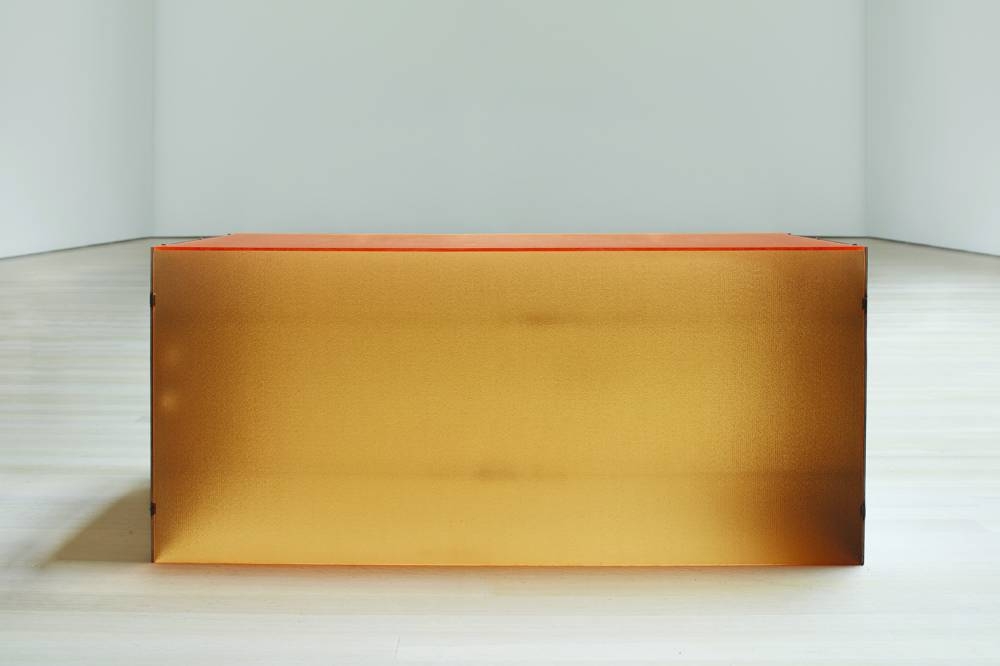
Donald Judd, untitled, 1964, hot-rolled steel and gold pebbled plexiglass.
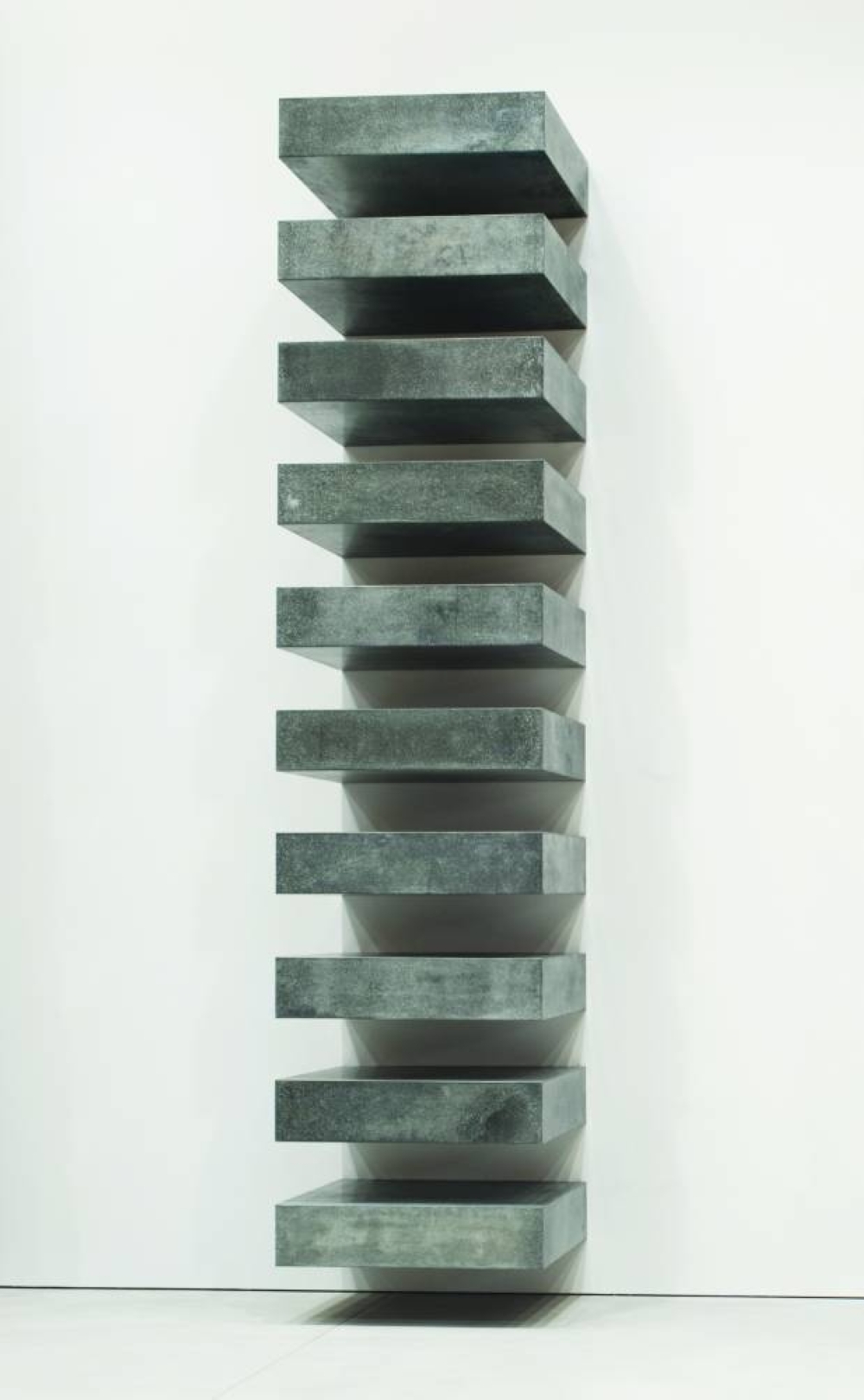
Donald Judd, untitled, 1965 (fabricated 1967), galvanised iron. Qatar Museums collection.
